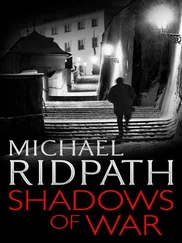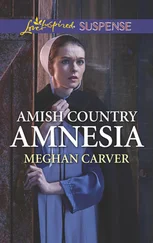When I first met Sophie de Parzac that afternoon in Paris forty years ago, I felt my life would never be the same again.
I was right.
Angus Culzie, Mundaring, Western Australia, 1973.
Tuesday 16 March 1999, Wyvis
‘I’m so sorry.’ The old man’s voice was hoarse. Clémence looked up at him. Two tears, one after the other, were running crookedly down the wrinkles etched in his cheek. ‘I’m sorry, Clémence. Will you forgive me?’
As she had been reading the last pages of Death At Wyvis, Clémence had felt the anger rise within her. She had tried to keep it out of her voice, but she could hear her own repressed fury as the words came out. It was all she could do to finish the afterword at the end. Angus — Alastair — had slept with his best friend’s wife, had murdered her and had let that friend go to jail for it. He had lied to the police and to his companions. Not only had he ruined Clémence’s grandfather’s life, but the consequences had flowed down the generations to her father and herself.
And yet, looking at the crumpled eighty-three-year-old sitting in front of her, a lost man who had just discovered he was a murderer, she couldn’t help feeling a flash of sympathy.
She knew she couldn’t answer his question. But she could look him in the eye, and she did so. ‘Shouldn’t you be asking Aunt Madeleine that?’
The old man nodded. ‘Yes, of course,’ he said. He turned to Madeleine.
The old woman looked stricken by what she had just heard. Until then, her energetic great-aunt had never struck Clémence as frail, but Uncle Nathan’s death had taken its toll, sapping her resilience. And now this.
But Madeleine set her shoulders and raised head. ‘I don’t think I can ever forgive you, Alastair. Sophie was a wonderful girl — and a wonderful woman. Reading that book, you get a sense of the effect she had on you, but she had that effect on everyone she knew. She lit up a room; she lit up a family. She made life better for everyone who knew her, including me. I still miss her; I’ll always miss her. Her death was very wrong.’
Madeleine stared hard at the old man. ‘But it was a long time ago. I have learned to live with the knowledge, not just that you murdered my sister, but that you were never punished for it.’
‘Why wasn’t I?’ the old man asked. ‘Why didn’t I go to jail? Why aren’t I still in jail?’
‘You got a good lawyer,’ said Madeleine. ‘A top Scottish QC. He advised you to retract what you had written in the novel. He argued that you couldn’t remember what had happened, that you were only guessing. He said the book was called a novel for a reason.’
‘And I went along with that?’
‘No. You insisted on pleading guilty. A trial date was set, but the QC persuaded the prosecution that they had no case, so they dropped it. You were furious, but there was nothing you could do. Legally, you didn’t actually know for sure that you were guilty, so your plea was unreliable, and without that the prosecution had no other firm evidence implicating you. In the end, the lawyer persuaded you to accept it.’
‘So Stephen stayed in jail?’
‘Oh, no. They let him out. He had already served fifteen years.’
‘So no one has been found guilty of Sophie’s murder?’
‘No. But the police have closed the case. They think it was you. We all think it was you.’
‘I see,’ said the old man.
‘I wondered where you had found the money to pay the lawyers’ fees. It was only later that I discovered that Nathan had paid them. He said he owed you for getting him out of trouble in Deauville. I was furious with him.’
‘Did they reopen Alden’s death?’
‘The French police weren’t interested. It was too long ago; there was some kind of statute of limitations for murder under French law, and after everything that went on in my country during the war, the authorities were very reluctant to reopen any cases from before 1945. A British journalist wrote an article in a Sunday newspaper, but Nathan sued him successfully. Since then no one mentions it. And it does come across as an accident in the book.’
‘Which it was,’ said the old man.
Clémence stared at him.
‘I know it means nothing at this stage,’ he said. ‘But I am truly sorry. To both of you. For what I have done.’
They sat in silence. Clémence knew that he meant it, with all his heart. The confused, vulnerable old man she had met in the hospital a few days before had had no idea he was a murderer. But he was. She could feel sorry for him, but she couldn’t forgive him.
‘There’s something else,’ the old man said.
‘What?’ said Clémence. But she knew immediately what he was thinking. She wished he hadn’t realized it, that she hadn’t realized it, that she hadn’t told Madeleine, that she could just deny it to herself.
‘You are my granddaughter. Your father Rupert must be my son. Right after Capri, Sophie became pregnant. That was with Rupert, wasn’t it?’
Clémence dropped her eyes and nodded.
‘Did you know all along?’ The old man’s sad eyes held a hint of accusation.
‘I only worked it out this morning,’ said Clémence. ‘Look.’
She picked up the photograph album that she and Madeleine had been looking at when the old man returned from his walk, and opened it at the photographs of Oxford. ‘See this photo of you here? Where you are in profile? You look exactly like my dad. Same nose. Same forehead. Doesn’t he, Aunt Madeleine? And Dad has a cleft chin, like you.’
Madeleine nodded. ‘It’s true.’
‘Did you remember knowing that you were Dad’s father?’ Clémence asked.
‘No, I guessed it from the timing. And let’s just say I’m not surprised that we are related.’ The old man smiled at Clémence. ‘I am proud you are my granddaughter. Although...’ He swallowed. ‘Although I am ashamed too. Bitterly ashamed. That your grandfather is a murderer.’
‘I think I’ll stick with Stephen as my grandfather, if you don’t mind.’ said Clémence, letting the anger harden her voice. ‘He was innocent. You might have put him in jail, but you can’t take him away from me.’
‘Of course,’ said the old man. ‘I couldn’t do that.’
‘I knew nothing about any of this!’ Clémence protested. ‘I didn’t even know Grandpa had ever been in prison. I knew he’d been in films a long time ago, and I was vaguely aware there had been some sort of scandal, but I thought that had something to do with drink. And I believed my grandmother had drowned. No one told me anything !’ Her eyes were alight as she glared at the old man, and at her aunt. ‘At least now I know why my family is so fucked up. Why didn’t anyone tell me, Aunt Madeleine? Why didn’t you tell me?’
‘I am so sorry, darling,’ Madeleine said. ‘I did suggest that your father explain everything to you. But he had spent fifteen years hating his own father because he believed he had murdered his mother. That’s why he ran away to Morocco. He had a troubled time in his twenties, you probably knew that.’
Clémence nodded. She did. In her teens she had come to understand that in her family drugs were an issue for the parents and not the child.
‘And your mother just wanted to protect you from it all. I can understand why. I think the only reason she let me see you was that I paid for your education.’ Madeleine smiled. ‘I was worried about you. About your parents’ unconventional lives. But you turned out very well.’
A thought struck Clémence. ‘Once the book came out, did everyone else realize I was Alastair’s granddaughter?’
‘Nathan and I knew all along,’ said Madeleine. ‘But Stephen never suspected. I don’t think it was a question of being in denial, I think it never occurred to him. And from what I can tell, Rupert was the same.’
Читать дальше












